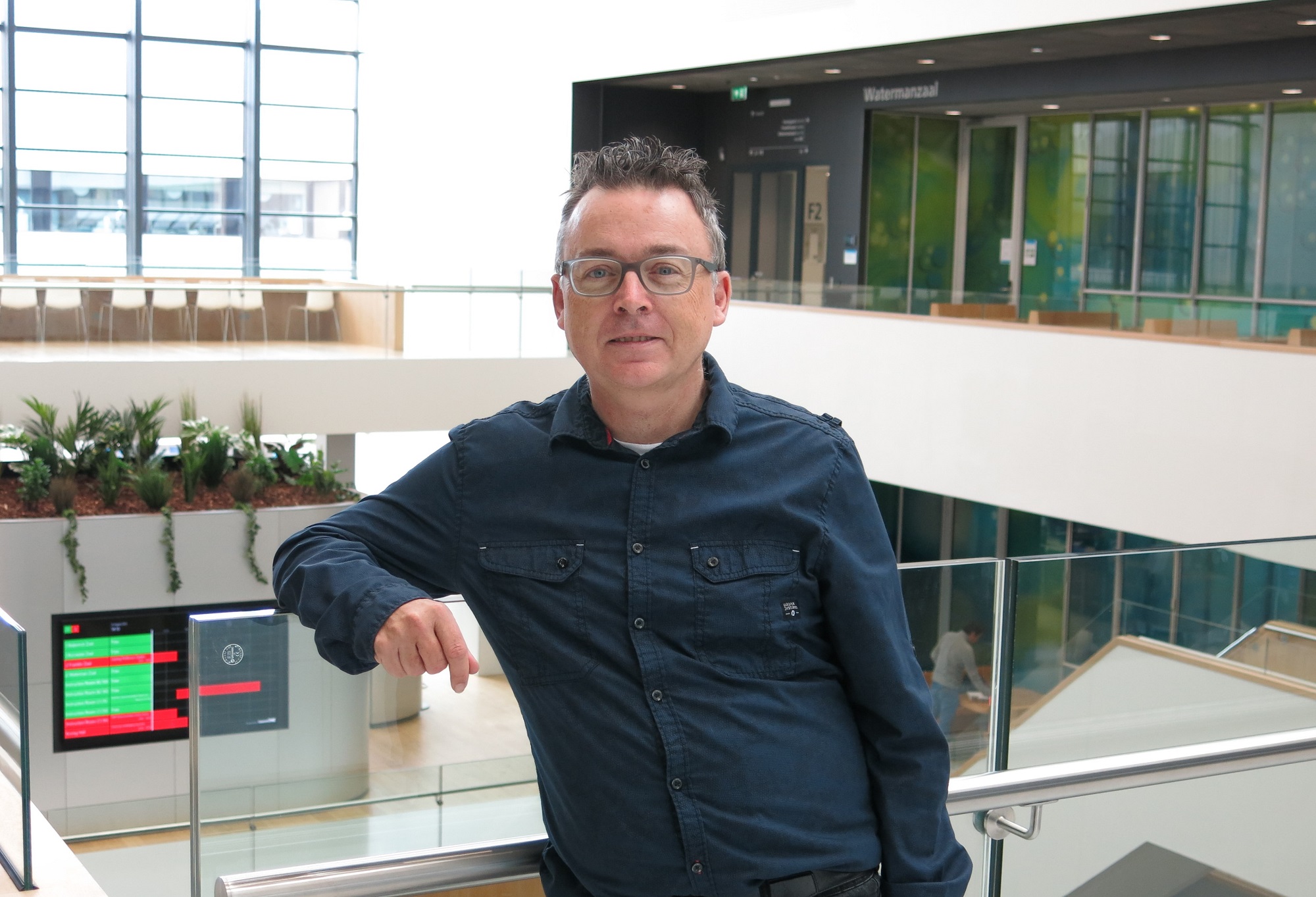Who are the people who study or work at TU Delft? We meet them in Humans of TU Delft. This time: Dr Stephen Eustace is a man of many languages and he’s not done learning yet.
Stephen Eustace: “In another language there’s another way of seeing the world. If we just all go to English, it becomes rather monotonous.” (Photo: Heather Montague)
English only
“I have been working at TU Delft for eight years as a nuclear magnetic resonance (NMR) technician. I’m officially working in the Biotechnology department here, but I actually work for the entire campus. We have one NMR machine here at the Faculty of Applied Sciences and we have three machines in the Reactor Institute.
I haven’t always been interested in languages. My first experience with languages would have been in primary school in Ireland where we had to do Irish. I really didn’t like it, but then I went to secondary school and we had a couple of exotic and eccentric French teachers and that started to get me interested. I went to Italy in 1992, and I’d done some preparation, some home study, and then I really started to get to grips with the language. So Italian was the first language that I became fluent in. And then I moved to the Netherlands in 2001 and eventually in 2005 I stopped speaking English on the job and even in my social life. When you do that, you see the world through a different filter, you experience it very differently. You see the Netherlands through Dutch eyes, as opposed to through Irish eyes.
I am fluent in English, Dutch, French, Irish and Italian. I am fairly fluent in Croatian and I can just about get by in German, but I’ll probably use some Dutch words when speaking German. I also speak some Spanish and, like my German, I just modify my Italian and hope for the best. And then I have some less fluent languages where, for example, I can go to a restaurant, I can say what I do for work and that kind of thing. Then during the Covid lockdown I started doing self-study to learn Georgian. I was studying day and night because there was nothing else to do. It’s quite a difficult language. It’s got a different alphabet and it’s got a case system like Croatian or German. For example, there are different verbs for ‘to have’. ‘I have an apple’ is different than ‘I have a sister’. That’s what I like about languages, that there is also a way of thinking with each one.
‘There is no word for the Dutch word ‘nagenieten’ in English’
I think English has too high a profile, and I see that it’s invading the Dutch language. Dutch people are using a lot of English words, or dressing them up with Dutch grammar. Like I said, in another language there’s another way of seeing the world. In Dutch, there’s this beautiful word which is ‘nagenieten’ which means enjoying something after it happens. You can’t translate that. There is no word for that in English. If we just all go to English, it becomes rather monotonous. I walk into work in the morning and I try to greet everybody in their own language. I don’t speak all their languages, but I can say good morning to most people and it does bring a smile to their faces.
The annual European Day of Languages is on 26 September and there will be an event in Amsterdam. I’ve been participating for the past few years. There are people from different countries representing different languages. People bring different foods from their country, and flyers, and handouts. It’s about recognising the languages that we have in Europe, not just the bookish aspect with grammar, but the whole package of culture, food, wine, and language. I’ll be representing the Irish language, or Gaeilge – or Gaelic as it’s commonly known in English – as it’s called, which a lot of Dutch people don’t know is its own separate language. It’s not a dialect of English.
I want people to know that you don’t have to be young to learn languages. I can prove that because most of the languages I speak I have learned during my 40s and 50s. I also think it’s important to recognise that there is such beauty in the diversity of European languages.”
Want to be featured in Humans of TU Delft? Or do you know someone with a good story to tell? Send us an e-mail at humansoftudelft@gmail.com
Heather Montague / Freelance writer



Comments are closed.